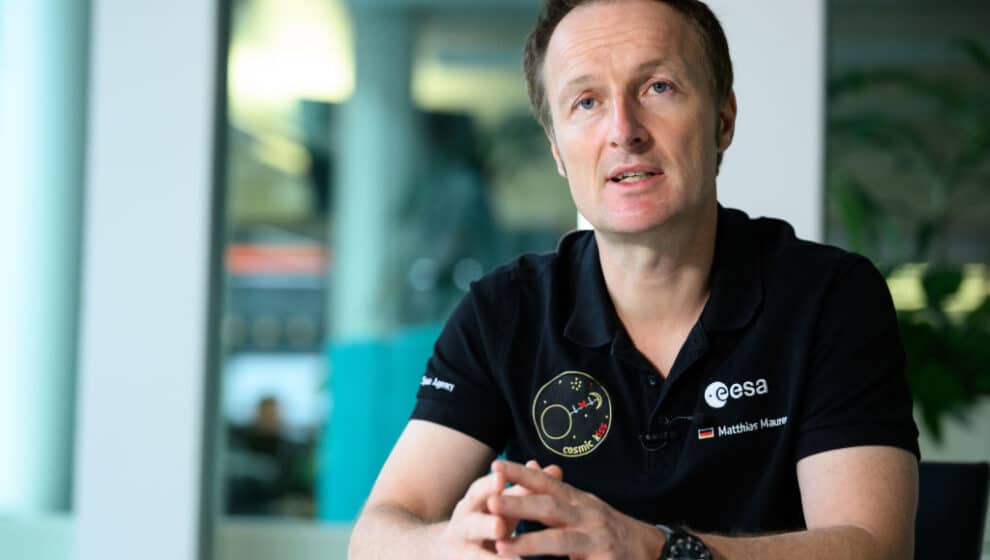Several astronomers and scientists spoke about how investment in space can benefit the world’s most challenging problems.
Key Details
- Day 4 of the annual World Economic Forum meeting Davos 2023 has been brought to a close.
- One of the more exciting panel guests was European Space Agency (USA) astronaut Matthias Maurer—who broadcast live from the International Space Station.
- He joined the discussion “Live From Space: The Next Frontier for Knowledge and Action,” about the space economy with New York Times editor Rebecca Blumenstein, former Vice President Al Gore, UAE space agency chair Sarah Al Amiri, Astra CEO Chris Kemp, and USA Director General Josef Aschbacher.
- The panel discusses issues, including how space can be used to solve global problems and the logistical challenges of cooperating and operating in space safely.
Why It’s Important
As we’ve reported before, investment in the space economy is expanding rapidly and only stands to grow larger as NASA, SpaceX, and others begin larger missions to our moon and Mars. Even closer to Earth, the number of telecommunications satellites continues to grow, with thousands of new satellites being launched each year. Space will become more crucial to the stability and functioning of the world economy as communications and data rely more heavily upon satellite technology.
“I see the majority of space investment in Earth. If you look at companies like SpaceX, the capital is being invested in making a more connected and healthier planet, where we can better and more efficiently consume resources and operate as a species,” says Kempe.
The Problem
This means that there are opportunities as well as a reason to be cautious. As Aschbacher notes, the European Space Agency is pushing for new policies surrounding debris in space to prevent the upper atmosphere from becoming crowded with dead satellites, risking collisions that threaten other satellites and rocket launches. Maurer encouraged strict rules for rocket launches and debris management to avoid unnecessary risks that could endanger the lives of anyone active in space.
“We want to establish a zero-debris policy, which means that if you bring a spacecraft into orbit, you have to remove it. We need to protect our orbits for our own safety and the safety of spacecraft and astronauts,” says Aschbacher.
Possible Solutions
Space exploration often is not popular. It is a common opinion that space travel is a waste of money that ought to be spent on Earth-based solutions to problems like climate change and poverty. As Maurer notes though, space technology and exploration can play a significant role in motivating changing and finding scientific solutions to world problems.
“Space cannot be the only solution for climate change, but it is a very important aspect. I see three different layers to it. Every individual needs to contribute to it, and space is a major motivator. Technology needs to be improved to be more efficient and produce less CO2, and we do alot of research on the space station that contributes. And the political level is discussing such problems. Decision-makers need the data that comes from satellites and the science we do in space,”

